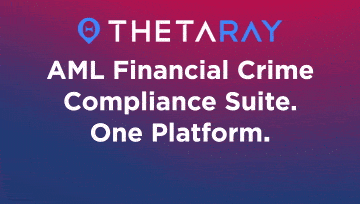News
In Reversal, Some Banks Value MSB Account Fees Over AML Risks
By Brian Monroe
Dozens of small banks and credit unions have begun courting money services businesses over the past year, offering financial services to the high-risk clients in exchange for compliance-related fees. The marketing effort is a reversal in the often fractious relationship between the companies, known as MSBs, and banks that have either turned away the businesses or charged high fees for taking on the associated anti-money laundering (AML) compliance risks. Faced with a tougher market, some small financial institutions are opening their doors to the businesses and offering lower fees to draw new clients, say MSB owners. "An increasing number of...
TO READ THE FULL STORY
Subscribe
Learn More
Related News
Terrorist attacks in Europe over the past year have done more than spur talk of new rules from the EU. They've also prompted major financial institutions to adjust their compliance controls in an effort to root out terrorism's financial backers. Such has been the case for Western Union Europe.
A U.S. Treasury Department official told banking representatives at a recent roundtable meeting not to expect safe harbor protections for providing accounts to money services businesses, according to multiple sources.
The U.S. Treasury Department's financial intelligence unit fined a Florida credit union $300,000 Tuesday for providing banking services to high-risk money services businesses with few anti-money laundering controls.
Short of abiding by the Community Reinvestment Act and other prohibitions against discriminatory lending, banks still have the right to choose who they'll do business with. While that seems like an obvious statement, it gets drowned out in the debate about "de-risking."
Not all money transmitters are overly vulnerable to money launderers and terrorist financiers and banks should refrain from automatically closing their accounts, U.S. Treasury Department officials said Monday.
U.S. authorities will clarify in pending guidance that not all remittance companies are susceptible to illicit financial activity, a government official said Wednesday.
President Obama is expected to sign into law a measure that would allow the U.S. Treasury Department to rely on state examinations of nonbank financial institutions, including money services businesses.
In a rare gesture last week, a federal regulator signaled to banks that they might relax when it comes to implementing certain anti-money laundering policies. There was only one problem: no one is likely to listen.
An individually-owned and operated money services business in Michigan will pay $12,000 and cease operations for failing to properly screen thousands of wire transfers to Yemen, U.S. regulators said Friday.
Arizona has granted the nation's largest money transmitter an additional three months to improve its anti-money laundering compliance program and avoid criminal prosecution.
One of the country's top lobbying groups for money services businesses will ask lawmakers in February to streamline how the companies obtain licenses to operate in the United States.
The terms of a $100 million settlement disclosed Friday by MoneyGram for anti-money laundering lapses will cost the Dallas-based money remitter nearly $200 million once completed, regulatory documents show.
A 2008 investigation of Colombian cash couriers by customs officials and the U.S. Justice Department that made headlines for its ties to European cocaine sales had a lesser known result: Bank Secrecy Act regulations.
Thousands of small money services businesses have lost some federal anti-money laundering oversight and guidance due to budget cuts involving two U.S. Treasury agencies, according to current and former government officials.
An agreement by one the nation's largest money transmitters to better share transactional data with investigators has resulted in greater scrutiny, both for the business and its chief competitor.
Money services businesses have been slow to respond to an April request by the U.S. Treasury Department to provide more data on their individual agents, say compliance professionals.
The U.S. Treasury Department is in the final stages of levying a $12,000 civil money penalty against a New Jersey-based money remitter for failing to register as a money services business.
A U.S. Treasury Department plan to increase reporting on cross-border transactions would allow federal regulators and investigators to more easily detect unregistered money remitters - if they can sift through the data.
Lawmakers re-introduced a bill Wednesday that would allow money services businesses to certify that they are compliant with anti-money laundering regulations, a move the industry believes could help make them less risky customers and keep banks from dropping their accounts.
The Financial Crimes Enforcement Network, along with other federal banking agencies, expects to issue guidance shortly outlining compliance expectations for banks holding accounts for money services businesses and for the MSB industry itself.

